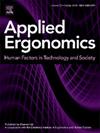一个系统的文献综述之间的关系管理和弹性在医疗保健
IF 3.1
2区 工程技术
Q2 ENGINEERING, INDUSTRIAL
引用次数: 0
摘要
医疗保健弹性(RiH)是指适应不同系统层面的挑战和变化,以保持高质量护理的能力。管理者在促成、培养和支持RiH方面发挥着关键作用。尽管各种各样的管理方法、策略和干预措施已经付诸实践,并在医疗保健领域进行了检验,但关于管理人员对医疗保健组织内恢复力的影响以及哪种类型的管理策略和方法促进了RiH,仍然存在知识差距。目的本研究旨在梳理和综合管理策略与创新创新的相关研究证据,探讨管理方法和管理策略对创新创新的影响。数据来源cinahl, MEDLINE, Pubmed和Embase。(1)主要的定性、定量和混合方法研究,以英文发表;(2) (a)评估管理与RiH之间的关系和/或探索促进RiH的管理活动、策略、方法和干预措施,(b)在医疗保健环境下。筛选、数据提取和综合研究标题、摘要(n = 2433)和全文(n = 75)由一对独立审稿人筛选纳入。分歧通过讨论得到解决。数据由两组审稿人使用预先设计的数据提取表独立提取。结果共纳入16项研究。分析得出七个主题:发展关系;权衡;为适应留出空间;创新的解决方案;语境理解和协作学习。RiH的管理策略包括发展与员工的关系,进行合理的权衡,为适应留出空间(例如,吸收性、适应性和变革性战略),发起、实施和开放创新解决方案,发展对工作场所的上下文理解,确保员工和领导者之间在宏观层面上的良好沟通,并实现协作学习。由于工作文化和资源获取的差异,RiH的管理策略可能是具体的。可以开发支持RiH的新方法,使用现有的管理策略作为支持医疗保健组织内部弹性的基础。本文章由计算机程序翻译,如有差异,请以英文原文为准。
A systematic literature review of the relationship between management and resilience in healthcare
Background
Resilience in healthcare (RiH) is about the capacity to adapt to challenges and changes at different system levels, to maintain high quality care. Managers play a critical role in enabling, fostering and supporting RiH. Despite the wide range of management approaches, strategies, and interventions that have been put into practice and examined in the healthcare field, there remains a knowledge gap regarding managers' impact on resilience within healthcare organizations and what type of management strategies and approaches promote RiH.
Aim
This systematic review aimed to identify and synthesize research evidence concerning management strategies and RiH as well as to explore the relationship between, and impact of management approaches and strategies on promoting RiH.
Data sources
CINAHL, MEDLINE, Pubmed and Embase.
Eligibility criteria
(1) primary qualitative, quantitative, and mixed-method research studies, published in English; and (2) (a) evaluated the relationship between management and RiH and/or explored management activities, strategies, approaches, and interventions promoting RiH, (b) in the context of healthcare settings.
Screening, data extraction and synthesis
Study titles, abstracts (n = 2433), and full-texts were (n = 75) screened for inclusion by pairs of independent reviewers. Discrepancies were resolved via discussion. Data were extracted independently by pairs of reviewers using a predesigned data extraction form.
Results
Sixteen studies were included in the review. The analysis resulted in seven themes: Development of relations; Trade-offs; Making room for adaptations; Innovative solutions; Contextual understanding and Collaborative learning.
Conclusion
Management strategies for RiH include the development of relations with workers, conducting sound trade-offs, make room for adaptations (e.g., absorptive, adaptive, and transformative strategies), to initiate, implement and being open to innovative solutions, developing a contextual understanding of their workplace, ensuring good communication between workers and leaders at the macro level, and to enable collaborative learning. Management strategies for RiH are likely to be context specific due to differences in work culture and access to resources. New ways of supporting RiH might be developed, using existing management strategies as the foundation to support resilience within healthcare organizations.
求助全文
通过发布文献求助,成功后即可免费获取论文全文。
去求助
来源期刊

Applied Ergonomics
工程技术-工程:工业
CiteScore
7.50
自引率
9.40%
发文量
248
审稿时长
53 days
期刊介绍:
Applied Ergonomics is aimed at ergonomists and all those interested in applying ergonomics/human factors in the design, planning and management of technical and social systems at work or leisure. Readership is truly international with subscribers in over 50 countries. Professionals for whom Applied Ergonomics is of interest include: ergonomists, designers, industrial engineers, health and safety specialists, systems engineers, design engineers, organizational psychologists, occupational health specialists and human-computer interaction specialists.
 求助内容:
求助内容: 应助结果提醒方式:
应助结果提醒方式:


